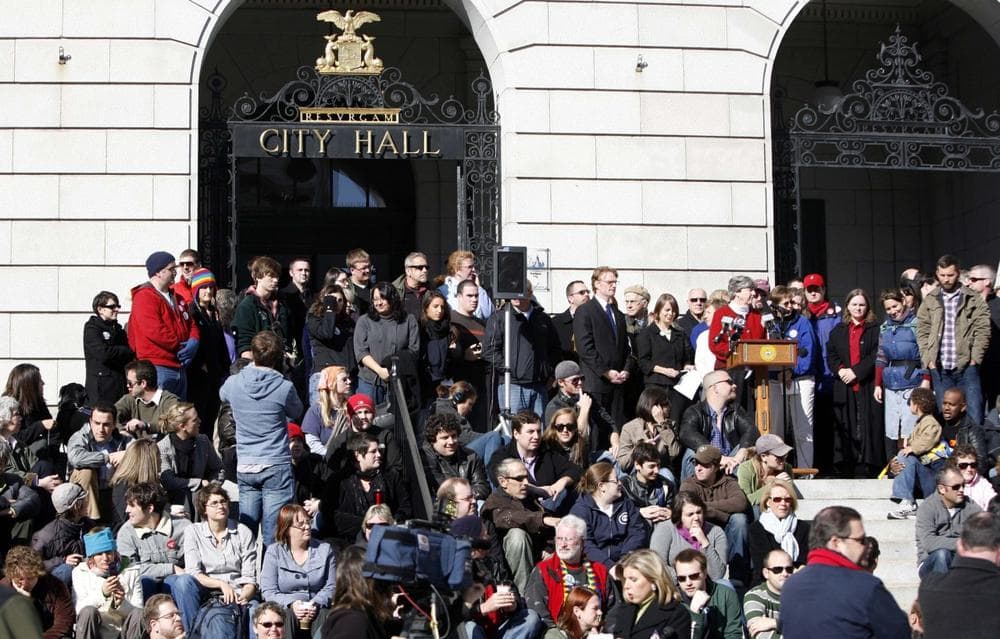Advertisement
Gay Marriage Backers Vow To Keep Up Fight In Maine

Supporters of a gay marriage law rejected by voters took heart Wednesday in the 47 percent they received in a referendum that drew a turnout close to what's seen in a presidential election year.
Leaders of the campaign that tried unsuccessfully to prevent the scuttling of Maine's gay marriage law vowed to continue what they termed a civil rights struggle. But what form their effort will take is not yet known.
"Today's not a day to talk strategy," said Mary Bonauto, civil rights project director for Gay & Lesbian Advocates & Defenders. Instead, she said, the day after the defeat was a time for healing.
Scott Fish, spokesman for the anti-gay marriage campaign, said he was not surprised at the outcome despite being overspent by the other side because projections in the late days of the campaign indicated that a repeal was likely.
Unofficial tallies from 98 percent of precincts showed gay marriage opponents with 53 percent - or 298,634 - of the vote, compared with 267,035 in favor of gay marriage. At least 55 percent of eligible voters showed up at polls, far surpassing early predictions of a 35 percent turnout.
The vote marked another defeat for gay marriage supporters following last year's Proposition 8 campaign in California that repealed court-ordered gay marriage. There are now five states that allow gay marriage - Iowa, Massachusetts, Vermont, New Hampshire and Connecticut.
In Maine, voters in Augusta lined up outside the city's civic center and struggled to find parking spaces outside polls at the Bangor Auditorium. In South Portland, the city clerk had to scramble to make photocopies of ballots after running out.
Secretary of State Matthew Dunlap estimated 1,000 voters were in line in Bangor. Dunlap, the state's top election official, visited polls around the state and said he heard from town clerks who were taken aback by the heavy showing.
Portland had 8,000 requests for absentee ballots, setting a record for a nonpresidential campaign. Turnout statewide approached the numbers Maine sees in a presidential election year.
Before the election, both sides surmised that turnout by young voters would play a pivotal role in whether the gay marriage law was repealed.
"I think the young people came out, but all the voters really came out," said University of Maine political scientist Amy Fried. "Certainly there were some very strong emotions associated with the gay marriage debate."
The defeat of gay marriage was a crushing blow to those who'd hoped to wed, like Sara Panella of Portland, who had planned to marry her partner of six years, Rebecca Spitko.
"We're still very disappointed and confused," said Panella. "I feel like I'm left with just wondering why. I still feel that this is really an issue of civil rights for gay and lesbian people. I can't understand how those voting yes ... still believe that this affects them and their lives in some way."
Bishop Richard Malone, the leader of Maine's Roman Catholic diocese, which opposes gay marriages, issued a statement saying the campaign "has also been an opportunity for listening, and I trust that those who voted for such a radical change did so out of concern for our gay brothers and sisters. Respect and acceptance of all people regardless of sexual orientation is not a point of controversy."
This program aired on November 4, 2009. The audio for this program is not available.